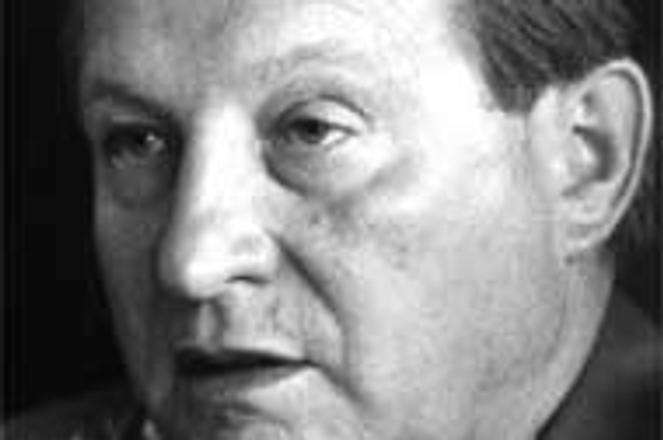Party-bound. Unhappy with Slovakia's failure to join NATO, Slovak Army General Jozef Tuchyňa has decided to enter politics.Vladimír Hák
General Jozef Tuchyňa, Chief of the Slovak Army General Staff, has decided to quit the ranks and enter politics for the September 25-26 national elections on the ticket of the Party of Democratic Left (SDĽ). However, two obstacles bar his way to the chamber. For one, Defence Minister Ján Sitek signed Tuchyňa's resignation request effective from September 30, after the elections are scheduled to take place. Perhaps a bigger problem is that Tuchyňa can only be freed from his post by the President, whose office has been vacant since March.
On June 29, Sitek announced that Tuchyňa would be released from the Slovak Army by September 30, at his own request. "[Tuchyňa's] request met all the requirements for retirement, so it was approved," said František Kašický, Defense Ministry spokesman.
Tuchyňa had indicated that he had wanted to enter politics for the past year. "Last year...I informed Defense Minister Ján Sitek and the Commander-in-chief of the armed forces Vladimír Mečiar, that I want to quit the post," the Pravda daily quoted Tuchyňa as saying on July 10. "In response, they asked me to lead the Army, at least until the elections."
Tuchyňa aims to exchange his military rank for a post on the SDĽ candidates' list. "I accepted the SDĽ offer, and we agreed that my name should be within the top ten on the list," Tuchyňa said for Pravda. The SDĽ, which recorded over 10% of the vote in the 1994 elections, currently has 18 deputies in the chamber. Recent opinion polls put the party's support between 13-15%, which means that Tuchyňa should be elected.
According to Slovak law, an army officer cannot run as a party candidate. "The law permits a professional army officer to be elected, but only as an independent deputy," explained Kašický, adding that as a party member, Tuchyňa's candidature would contravene the law. But Tuchyňa said he would appear on the SDĽ ticket as an independent.
However, it is beyond Sitek's competence to discharge Tuchyňa from his ranks, because only the Slovak President has that power, and the country has been without one since March 2, when Michal Kováč stepped down, leaving no successor. Although most presidential powers devolved to Premier Vladimír Mečiar, the power to appoint the army's chief commander and to promote army generals was not among them.
Kašický said that because of that, Tuchyňa had to remain in office until this legal crisis was resolved. "The law would have to be changed to solve the issue," Kašický said.
But Tuchyňa, for his part, did not find it a problem and refused to remain in office after September 30. "Whoever's job it is to accept the resignation of the former commander-in-chief and appoint the new one is not my business," Tuchyňa said.
Kašický said that if Tuchyňa refuses to stay in office, General Július Humaj, Tuchyňa's current statutory deputy, would take over. "There are no discussions on a replacement yet," Kašický added.
Commenting on the matter, Tuchyňa rejected connections between his retirement and political ambitions. "The resignation does not concern my personal aspirations; it only concerns my professional service," Tuchyňa said.
Pavol Kanis, SDĽ Vice-Chairman and a former defense minister, called on Tuchyňa to remain as commander until the presidential crisis is resolved. Kanis, who was in a ministerial post when Tuchyňa was appointed chief commander in 1994, said it was too soon to assign Tuchyňa a firm place on the SDĽ ballot. "The candidates' list will be negotiated at the July 11 party congress," Kanis said. "That will be 'D' day to make a final decision."
During Tuchyňa's posting, the Slovak Army has consistently been the state institution most trusted by the public. The army also has been praised often by foreign officials for fulfilling the requirements for NATO membership to such an extent that many labelled it number one among all post-communist countries' armies.
Tuchyňa did not bother to hide his disappointment after Slovakia had been excluded from the first wave of NATO expansion, due to the country's alleged foot-dragging on democratic reforms and its political instability. In an interview for Pravda, he didn't deny that the failure played a crucial role in his decision to enter politics. "Despite the acknowledged and praised readiness of the Slovak Army to join NATO, we failed to enter the Alliance because of the political situation in our country, which was governed by political parties without many ties abroad," he said.


